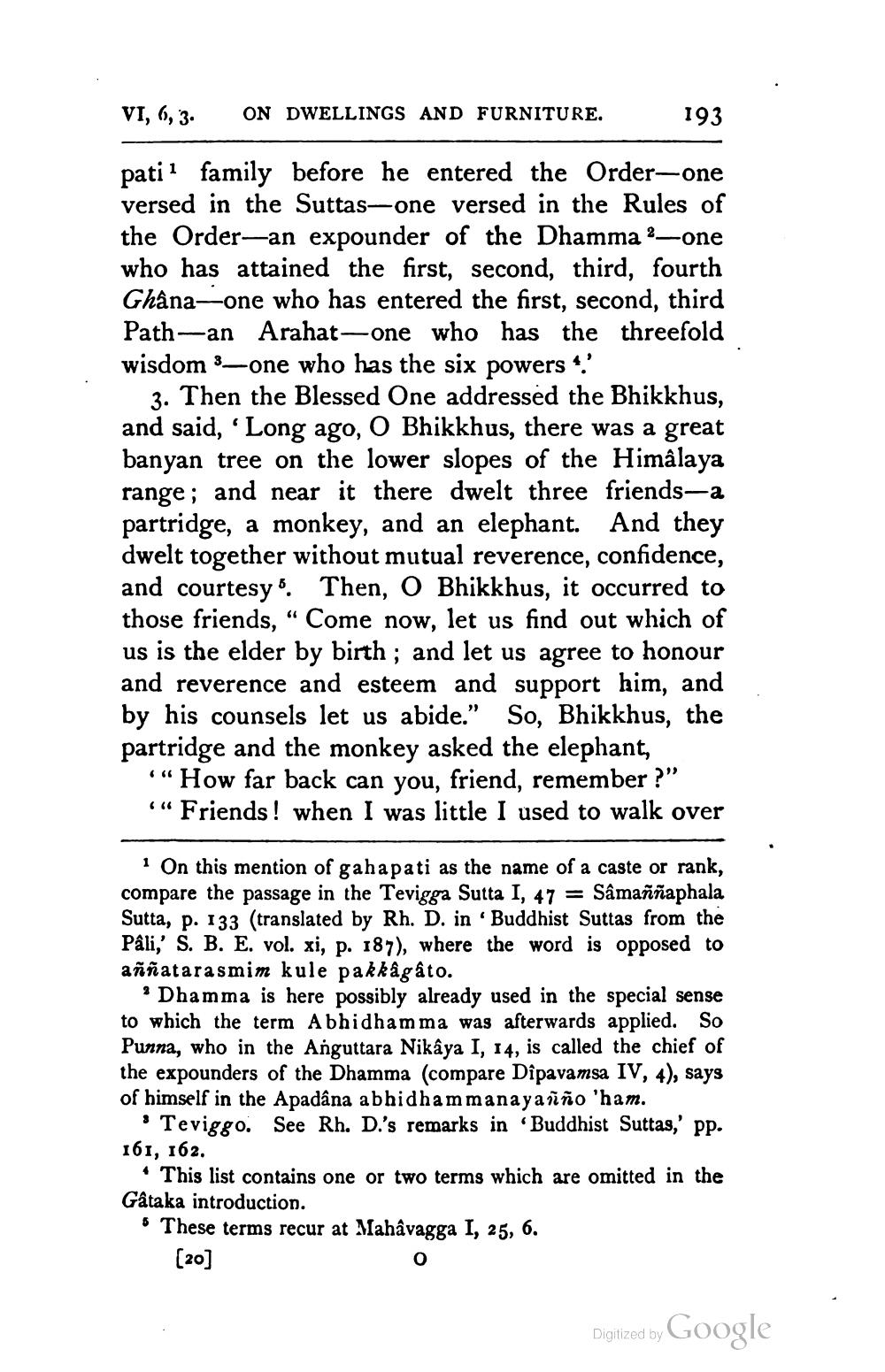________________
VI, 6, 3.
ON DWELLINGS AND FURNITURE.
193
pati 1 family before he entered the Order-one versed in the Suttas-one versed in the Rules of the Order—an expounder of the Dhamma 2-one who has attained the first, second, third, fourth Ghana-one who has entered the first, second, third Path-an Arahat-one who has the threefold wisdom 3-one who has the six powers
3. Then the Blessed One addressed the Bhikkhus, and said, 'Long ago, O Bhikkhus, there was a great banyan tree on the lower slopes of the Himâlaya range; and near it there dwelt three friends-a partridge, a monkey, and an elephant. And they dwelt together without mutual reverence, confidence, and courtesy. Then, O Bhikkhus, it occurred to those friends, " Come now, let us find out which of us is the elder by birth; and let us agree to honour and reverence and esteem and support him, and by his counsels let us abide.” So, Bhikkhus, the partridge and the monkey asked the elephant,
""How far back can you, friend, remember?" ““ Friends! when I was little I used to walk over
1 On this mention of gahapati as the name of a caste or rank, compare the passage in the Tevigga Sutta I, 47 = Sâmaññaphala Sutta, p. 133 (translated by Rh. D. in 'Buddhist Suttas from the Pâli,' S. B. E. vol. xi, p. 187), where the word is opposed to aññatarasmim kule pakkâgâto.
Dhamma is here possibly already used in the special sense to which the term Abhidhamma was afterwards applied. So Punna, who in the Anguttara Nikâya I, 14, is called the chief of the expounders of the Dhamma (compare Dipavamsa IV, 4), says of himself in the Apadâna a bhidham mana yanño 'ham.
* Teviggo. See Rh. D.'s remarks in Buddhist Suttas,' pp. 161, 162.
• This list contains one or two terms which are omitted in the Gâtaka introduction. 5 These terms recur at Mahâvagga I, 25, 6.
[20]
Digitized by
Digitized by Google




